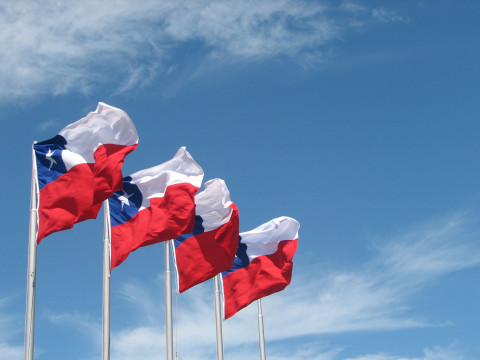Current drug laws in Chile
The current legislation of drugs in Chile.

The current legislation, Law 20.000, was passed and published in February 2005. It substituted Law 19.366, passed in 1995, which punished illicit trafficking of narcotics and psychotropic substances. Law 20.000 introduced the legal figure of micro-trafficking, establishing penalties for this crime. The law does not prohibit personal and private consumption of any drug, although it does penalize consumption in groups. It does not establish a threshold for quantity, and the distinction between trafficking and consumption is left to the discretion of the judge. Its implementing regulation, Decree 867, published in 2007 by the Interior Ministry, specifies what drugs, plants and substances are illicit. This decree places cannabis and its derivatives on the list of “hard drugs that produce high levels of toxicity or dependence,” which requires the application of maximum penalties for crimes related to this substance. Decree 143, published August 18, 1997 by the Justice Ministry, requires the Civil Registrar to keep a registry of all people sentenced for crimes involving drugs.
Law 20.000, passed in 2005 and reformed in 2007, introduced a legal figure that did not exist in prior legislation, establishing penalties for micro-trafficking that is categorized as possession of small quantities of drugs. The law maintains penalties for trafficking, which run between five and 15 years in prison, and includes penalties for trafficking small quantities, with jail time between 541 days and five years, unless the accused can demonstrate that the substance is for personal consumption. Another important modification introduced by Law 20.000 is the possibility of police officers working as undercover agents.
Article 4 of the law does not prohibit personal consumption in private of any drug: “Individuals who, without due authorization, possess, transport, hold or carry on their person small quantities of drugs that produce physical or psychological dependency, or the raw materials used to obtain these drugs, will be punished with no less than 541 days and up to five years in prison, unless they can justify that it is for medical treatment or exclusively for personal use or consumption in the short term.” While the law does not state that determined drugs can be consumed, consumption of any drug is neither penalized nor fined.
Article 50 refers to penalties when substances are consumed in public places: “Individuals who consume drugs or narcotic or psychotropic substances referred to in Article 1 in public places or spaces open to the public, such as streets, paths, plazas, theaters, movie theaters, hotels, cafes, restaurants, bars, stadiums, dance or music halls, or in educational or training centers, will be punished with the following penalties.” It mentions “obligatory participation in prevention programs for up to sixty days, or treatment or rehabilitation, in this case up to one hundred eighty days in institutions authorized by the competent Health Service” and/or fines, participation in determined community service, and suspension of driver’s license. “The same penalties will apply to those who consume these drugs in private places or settings, if there was agreement for this purpose.”
Law 20.000 formally decriminalized drug possession for immediate personal use in a private setting. Drug use or possession in public places is a crime punishable with fines, mandatory treatment, community service and/or suspension of the individual’s driver’s license. Cannabis use is not penalized, but growing the plant is “unless one can justify that it is for exclusive personal consumption and use in the short term” (Article 8). Possession for personal use can be punished with minor fines, community service or participation in rehabilitation programs. While the majority of cases end with fines being suspended or only with administrative sanctions, a large number of people detained with small quantities do end up in prison.
The law makes no reference to specific quantities -- it does not mention grams or weight in general -- but the implementing regulation passed in 2007, Decree 867, does characterize and penalize holding or possessing prohibited drugs that are trafficked as the act or intention of transferring these substances to a third party. Judges in each case have the power to decide if a person is a consumer or trafficker.